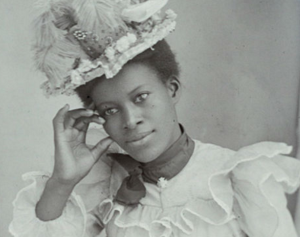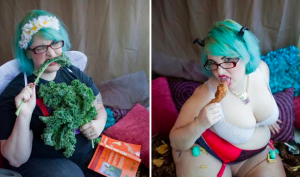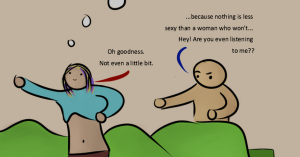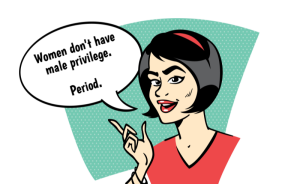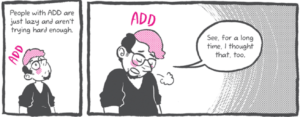The topic of animal rights is a controversial one, especially in mainstream black communities, because it is so often viewed as a “white person’s” issue.
For example, consider how white celebrities like Ricky Gervais, Sharon Osbourne, Piers Morgan, and others publicly denounced the slaying of Cecil the Lion through Twitter. And yet, these same celebrities have been pretty silent during the #BlackLivesMatter struggle – which hasn’t gone unnoticed.
In fact, in the NY Times, popular black feminist Roxane Gay wrote: “A late-night television host did not cry on camera this week for human lives that have been lost. He certainly doesn’t have to. He did, however, cry for a lion, and that’s worth thinking about.”
Yet, while the mainstream animal rights movement has a reputation for neglecting people of color and our unique struggles with systemic injustice, there is an intersectional and diverse animal rights movement amongst black activists that is invested in decolonial justice.
I have been advocating for animal rights since I was about 18 years old (I’m now 26) and made the transition to veganism after I was exposed to literature from black vegans about 2-3 years ago.
Because of how intersectional my identity is, I used to feel pretty isolated in most of the mainstream social justice movements like feminism, anti-racism, and animal rights – but then I encountered a community of black vegans and animal rights activists who spoke to my experiences as a black woman living in the US.
To be clear, veganism and animal rights are not the same thing. There are vegans who care about their health and disregard animal exploitation, and animal rights activists who care for animals, but eat meat.
I use the terms interchangeably because I feel that the ultimate way to fight for animal rights is to not eat their bodies. Veganism is a political practice for me.
However, because veganism and animal rights have a reputation for being white and excluding people of color, many of my black friends, family, and community members have had a pretty difficult time understanding what either topics have to do with them or why they should even get involved – especially when they have to deal with police brutality, systemic racism, and multiple injustices.
So, in this article, I want to highlight how animal rights and veganism can be useful tools for fighting white supremacy and patriarchy, and that it’s in our community’s interest to advocate for animal rights alongside our own.
In the process of talking about my own values, I’ve encountered several common reasons for why black feminists and anti-racists say they don’t (or can’t) support animal rights or go vegan.
I will list the reasons below, attempt to address each issue, and offer suggestions for how the vegan and animal right’s movement can actually incorporate the experiences of black people as they move forward.
1. ‘Veganism Is a White Thing’
Veganism, which is the practice of not consuming animal flesh or products, and animal rights activism, which is a political movement to end animal exploitation and abuse, has a reputation for being a “white person’s thing.”
This is no surprise given that most mainstream representations of veganism are dominated by white bodies and most of the activism revolves around prioritizing theories born from white people and their perspectives.
Consequently, issues that impact people of color – like racism, classism, and heritage – are usually excluded or not seen as relevant. Therefore, there’s nothing in these movements or campaigns that attract black people.
Take a look at this clip from Orange Is the New Black where the black prisoners imitate “white people politics,” and of course, veganism is mentioned. As this clip demonstrates, it’s almost become an accepted black truth that animal rights and veganism are white things and don’t really have a place in movements for racial justice.
Soul Food Is a Staple Cuisine for a Reason
There are many reasons why black people eat meat and don’t connect to mainstream animal rights campaigns.
For one, soul food has been a staple part of our diets for generations and it is heavily dependent on animal flesh. In a lot of black communities, soul food is usually regarded as a nostalgic symbol of family, community, religion, resilience, and strength.
A lot of black people eat non-vegan soul food out of this tradition, not because they’re seeking to be oppressive to animals. Rather, it reflects the ways we managed to care for each other throughout, and immediately after, our enslavement in this country. Indulging is a demonstration of abundance.
Hence, it makes sense why we have such an emotional connection to the cuisine.
So if you’re going to make a campaign to try to get black folks to become vegan or animal rights activists, you have to speak to our unique history – not attack it.
Mainstream white animal rights groups don’t do this. They only focus on “the animals” without context.
When you have animal rights groups like PETA (People for the Ethical Treatment of Animals) making campaigns about going vegan to “get skinny” or to “be sexy,” this has absolutely nothing to do with the racialized history of meat consumption in the US.
Further, it perpetuates a very white standard of beauty and body acceptability that has a horrendous history of maligning the bodies of black women.
Veganism Isn’t Really White, But the Media Coverage of It Is
Many people of color use veganism as a tool of resistance to fight white supremacy. There are absolutely black people who are vegan and think animal bodies are important to talk about when we discuss oppression
Popular black vegan chef, Bryant Terry notes:
“We come from a legacy of Black people who grew their own fruits and vegetables in a garden, who were farmers and who ate whole foods… Unfortunately, when the media writes about healthy eating and veganism, it focuses only on privileged white people. Meanwhile my influences came from people of color.”
Police violence isn’t the only form of injustice on black bodies today. Vegans of color fight against a food system that seeks to wipe out black folks one meal at a time.
Too many urban, low-income areas, where brown folks live, are food deserts inundated with fast food restaurants and an abundance of food related health issues.
This isn’t accidental. Low income brown folks are dying as a result of our racist system and it’s limited food options.
The racist food system which, disproportionately discriminates against our bodies, is something that should be of concern to us.
The Sistah Vegan Project, which is run by black vegan feminist Dr. A. Breeze Harper, is one such activist concerned with this issue. She specifically highlights how food can be a tool for black people to decolonize their bodies.
If eating poor foods that are killing us is a product of colonization and racism, then eating healthy foods to combat our health issues is political and activist.
The consumption of animal products, especially animals produced by the toxic meat industry, is a violence against our bodies.
Further, consuming the flesh of an oppressed being that can feel pleasure and pain is a topic worthy of further investigation for our community.
This does not mean we have to give up the edible deliciousness of our heritage, however. Black vegans have even created vegan soul food.
We believe that that soul food shouldn’t be death foods, but life foods that sustain our health and spirit.
Saying that veganism is simply a “white” thing erases all of these amazing black vegans and animal rights activists who have contributed their energy to this cause.
While white people get more attention for their campaigns and movements, this doesn’t mean fighting for animal rights and eating a vegan diet is inherently white.
2.’Black People Are Always Compared to Animals – And It’s De-Humanizing’
Another reason many black people are generally resistant to mainstream animal rights spaces is that members of these spaces tend to draw comparisons between the oppression of black people and the oppression of animals – which ignores the legitimate sensitivity black people have to comparisons with animals in general.
There’s a deep-seated racist history in the US where black folks were treated as though they were animals. In fact, the unique enslavement of African people in the Americas is even referred to as “chattel” slavery. Not ironically, chattel is the name for a herd of animals “owned” by humans.
In animalizing us, white people found the perfect justification for abusing and raping us, using us for labor without concern for our well-being, putting us through excruciating medical experiments (without anesthesia), and for even killing us and leaving our bodies in the street for hours (like Mike Brown) as though we were merely road kill.
The strategy of animalizing black people in order to justify violence against our bodies continues to this day.
For instance, in March 2015, during an investigation of the San Francisco police department for racism, texts were uncovered in which the cops referred to black people as “monkeys” and one text referring to black people read: “It’s not against the law to put an animal down.”
The Animal Rights Movement Appropriates Experiences of Black Oppression to Gain Sympathy for Animals
Though the structure of oppression from which both animals and black people suffer might be similar, constantly comparing animal oppression to slavery or lynching seems to suggest that the only way racism figures into the conversation is by its usefulness in producing analogies for the benefit of animals alone.
Comparing oppressions is violent and exploitative, particularly because black oppression isn’t over.
Since the white animal rights movement hasn’t explicitly expressed a desire to take anti-racist work seriously, it seems as though they are using our struggles for their own gain.
To be shocked by animal abuse while remaining silent about racial injustices doesn’t make sense.
Why Animals Should Matter to Black Activists (Despite White Offensive Animal Rights Campaigns)
Though many white animal rights campaigns are problematic, it doesn’t mean that as black people, we don’t have our own reasons for caring about animals and the systemic violence directed towards their bodies.
Black vegan activists tend to avoid mere comparisons between oppressions and instead take note of the deep ways in which racism and animal oppression intersect.
The divide between “human” and “animal” seems to mirror the racial divide between “white” and “black.”
In fact, it seems as though our society’s idea of what it means to be“human” equates to “being white.” If you’re not white, you’re generally referred to as “exotic,” “primitive,” “irrational,” and/or “animalistic.”
Since we live in a white supremacy, deviating from whiteness has severe consequences. If you’re not white, it’s easier for our culture to view you as an animal, and justify violence towards you.
Since black people in the US have constantly been compared to animals, we generally respond by trying to show how we are human and deserve to be treated as such. However, this is still problematic.
Emphasizing that we’re “human” is merely to say we are like white people and fearing the term “animal” is to fear being viewed as deviating from whiteness.
It makes no sense to anchor your respect and “humanity” to the disrespect of another group of beings.
As black people, if we fear being labeled an “animal” because it means that we can be used, abused, objectified, and killed, then perhaps we should question why animals are automatically deserving of abuse such that we’re terrified to even be called one.
3. ‘I Have to Deal with Oppression – I Don’t Have the Privilege of Caring for Animals’
Black feminist theorist Patricia Hill Collins wrote, “I have come to see that it is possible to be both centered in one’s own experiences and engaged in coalitions with others.”
While our generation uses the term “intersectionality,” we oftentimes forget that we need to actively make connections, even to bodies that don’t look like our own.
Being a member of an oppressed class does not exempt you from being oppressive to others. We should refrain from getting too comfortable talking only of our own specific oppression.
Animal bodies endure some of the most grotesque, egregious forms of abuse in our modern capitalist system and we should consider them in our activism.
At the end of the day, no one’s liberation will occur within a context of injustice for another group of sentient beings.
The ease with which we look away from the suffering of sentient beings who are regarded as “less than” is the same ease that white people use to look away from our oppression. We must be mindful of reproducing the cycle of violence in our own movements.
***
We have our own vegan/animal movement going on in the black community (#BlackVegansRock) and its part of the struggle to fight white supremacy.
Whether you’re taking back your health by decolonizing your body from white supremacy because you live in a racist food desert, or whether you’re planting a garden like guerrilla gardener Ron Finley, or whether you’re refusing to look at animals as beings for you to consume, objectify, and oppress, you’re fighting white supremacy and this is why veganism is a useful tool of resistance for black folks.
*Aph Ko would like to thank her sister, Syl Ko, for helping her develop some of the ideas in this article.
[do_widget id=’text-101′]
Aph Ko is a feminist blogger, performer, and indie digital media producer. She is the creator of the site Aphro-ism where she provides critical analysis through a black feminist vegan politic with her sister Syl. Aph is on the editorial board for the F Bomb and she is a contributor to Striving with Systems. She wrote the first article that highlighted 100 Black Vegans titled “#BlackVegansRock: 100 Black Vegans to Check Out.“
Search our 3000+ articles!
Read our articles about:
Our online racial justice training
Used by hundreds of universities, non-profits, and businesses.
Click to learn more







